
Microserfs is an epistolary novel by Douglas Coupland published by HarperCollins in 1995. It first appeared in short story form as the cover article for the January 1994 issue of Wired magazine and was subsequently expanded to full novel length. Set in the early 1990s, it captures the state of the technology industry before Windows 95, and anticipates the dot-com bubble of the late 1990s.

William Goldman was an American novelist, playwright, and screenwriter. He first came to prominence in the 1950s as a novelist before turning to screenwriting. Among other accolades, Goldman won two Academy Awards in both writing categories: first for Best Original Screenplay for Butch Cassidy and the Sundance Kid (1969) and then for Best Adapted Screenplay for All the President's Men (1976).

The Johnson County War, also known as the War on Powder River and the Wyoming Range War, was a range conflict that took place in Johnson County, Wyoming from 1889 to 1893. The conflict began when cattle companies started ruthlessly persecuting alleged rustlers in the area, many of whom were settlers who competed with them for livestock, land and water rights. As violence swelled between the large established ranchers and the smaller settlers in the state, it culminated in the Powder River Country, when the ranchers hired gunmen, who invaded the county. The gunmen's initial incursion in the territory alerted the small farmers and ranchers, as well as the state lawmen, and they formed a posse of 200 men that led to a grueling standoff which ended when the United States Cavalry on the orders of President Benjamin Harrison relieved the two forces, although further fighting persisted.
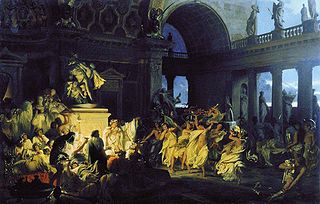
The word decadence refers to a late-19th-century movement emphasizing the need for sensationalism, egocentricity; bizarre, artificial, perverse, and exotic sensations and experiences. By extension, it may refer to a decline in art, literature, science, technology, and work ethics, or to self-indulgent behavior.

Girlfriend in a Coma is a novel by Canadian writer and artist Douglas Coupland. It was first published by HarperCollins Canada in 1998. The novel tells the story of a group of friends growing up in Vancouver, British Columbia, Canada in the late 1970s. On the night of a teenage house-wrecking party, one of the protagonists, Karen, falls into a coma. More alarmingly, she seemed to expect it, having given her boyfriend, Richard, a letter detailing the vivid dreams of the future she had experienced and how she wanted to sleep for a thousand years to avoid that dystopia.
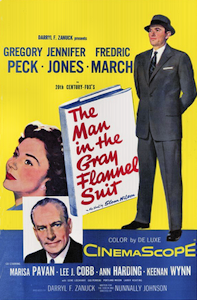
The Man in the Gray Flannel Suit is a 1956 American drama film starring Gregory Peck and Jennifer Jones, with Fredric March, Lee J. Cobb, Keenan Wynn and Marisa Pavan in support. Based on the 1955 novel by Sloan Wilson, it was written and directed by Nunnally Johnson, and focuses on Tom Rath, a young World War II veteran trying to balance the pressures of his marriage to an ambitious wife and growing family with the demands of a career while dealing with ongoing after-effects of his war service and a new high-stress job.

Life After God is a collection of short stories by Douglas Coupland, published in 1994. The stories are set around a theme of a generation raised without religion. The jacket for the hardcover book reads "You are the first generation to be raised without religion." The text is an exploration of faith in this vacuum of religion. The stories are also illustrated by the author. Several critics have suggested that this publication marks an early shift in the stylistic vocabulary of Coupland and, according to one critic, he was "excoriated presumably for attempting be serious and to express depression and spiritual yearning when his reviewers were expecting more postmodern jollity". However, the short story would later come to garner more praise though critics and academics have paid little attention to the publication in terms of academics' articles and commentary.

Yolande Margaret Betbeze Fox was an American singer, feminist, activist and beauty pageant titleholder who was crowned Miss America 1951.

All Families Are Psychotic is the seventh novel by Douglas Coupland, published in 2001. The novel is the fictional story of the dysfunctional Drummond family and their adventures on a trip to see their daughter's space shuttle launch.

The following lists some references to the Holocaust-era Jewish diarist Anne Frank in popular culture.

Good Morning, Miss Dove is a 1955 American CinemaScope drama film that tells the sentimental story of a beloved schoolteacher who reflects back on her life and former students when she is hospitalized. It stars Jennifer Jones, Robert Stack, Kipp Hamilton, Robert Douglas, Peggy Knudsen, Marshall Thompson, Chuck Connors, and Mary Wickes.
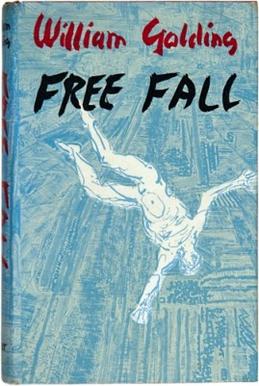
Free Fall is the fourth novel of English novelist William Golding, first published in 1959. Written in the first person, it is a self-examination by an English painter, Samuel Mountjoy, held in a German POW camp during World War II.

The Gum Thief is Canadian author Douglas Coupland's twelfth novel. It was published on September 25, 2007, by Random House Canada in Canada and Bloomsbury Publishing in the United States.
Artificial intelligence is a recurrent theme in science fiction, whether utopian, emphasising the potential benefits, or dystopian, emphasising the dangers.
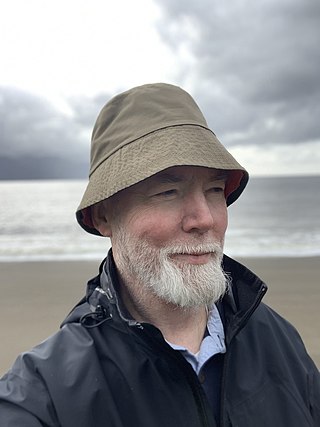
Douglas Coupland is a Canadian novelist, designer, and visual artist. His first novel, the 1991 international bestseller Generation X: Tales for an Accelerated Culture, popularized the terms Generation X and McJob. He has published 13 novels, two collections of short stories, seven non-fiction books, and a number of dramatic works and screenplays for film and television. He is a columnist for the Financial Times, as well as a frequent contributor to The New York Times, e-flux journal, DIS Magazine, and Vice. His art exhibits include Everywhere Is Anywhere Is Anything Is Everything, which was exhibited at the Vancouver Art Gallery, and the Royal Ontario Museum and the Museum of Contemporary Canadian Art, now the Museum of Contemporary Art Toronto Canada, and Bit Rot at Rotterdam's Witte de With Center for Contemporary Art, as well as the Villa Stuck.

Generation A is the thirteenth novel from Canadian novelist Douglas Coupland. It is dedicated to Anne Collins and takes place in a near future, in a world in which bees have become extinct. The novel is told with a shifting-frame narrative perspective, shifting between the novel's five main protagonists. The novel mirrors the style of Coupland's first novel, Generation X: Tales for an Accelerated Culture, which is also a framed narrative. On September 30, 2009, Generation A was announced as a finalist for The Rogers Writers' Trust Fiction Prize by The Writer's Trust of Canada.

Generation X: Tales for an Accelerated Culture is the first novel by Douglas Coupland, published by St. Martin's Press in 1991. The novel, which popularized the term Generation X, is a framed narrative in which a group of youths exchange heartfelt stories about themselves and fantastical stories of their creation.

Wilton Brad Watson was an American author and teacher of creative writing. Originally from Mississippi, he worked and lived in Alabama, Florida, California, Boston, and Wyoming. He was a professor at the University of Wyoming from 2005 until his death in 2020. In his lifetime Watson published four books – two novels and two collections of short stories – to critical acclaim. His fifth (posthumous) book is There Is Happiness: New and Selected Stories.
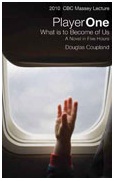
Player One: What Is to Become of Us is a novel written by Douglas Coupland for the 2010 Massey Lectures. Each of the book's five chapters was delivered as a one-hour lecture in a different Canadian city: Vancouver on October 12, Regina on October 14, Charlottetown on October 19, Ottawa on October 25 and ending in Toronto on October 29. The lectures were broadcast on CBC Radio One's Ideas, November 8–12. The book was published by House of Anansi Press.


















